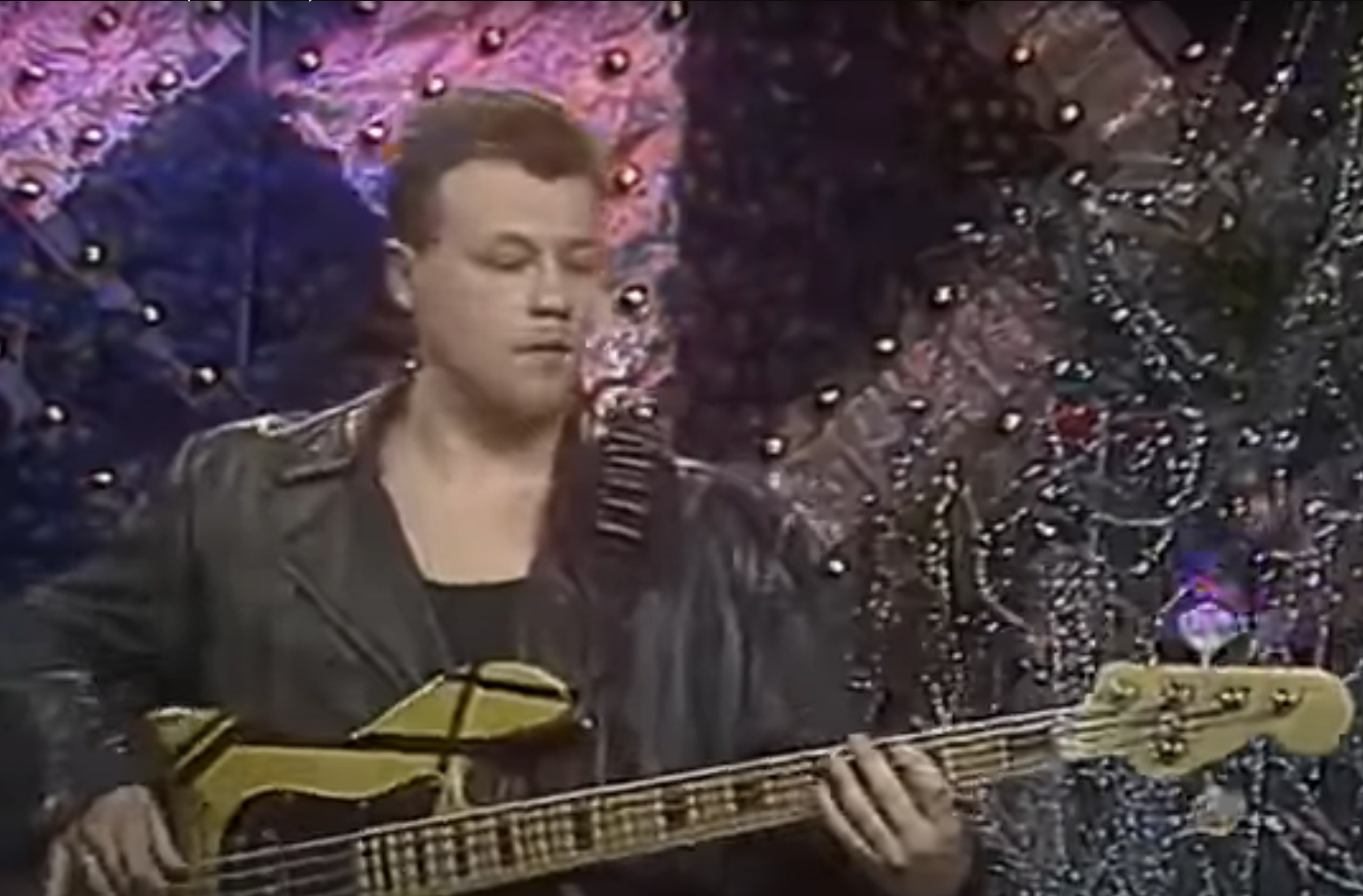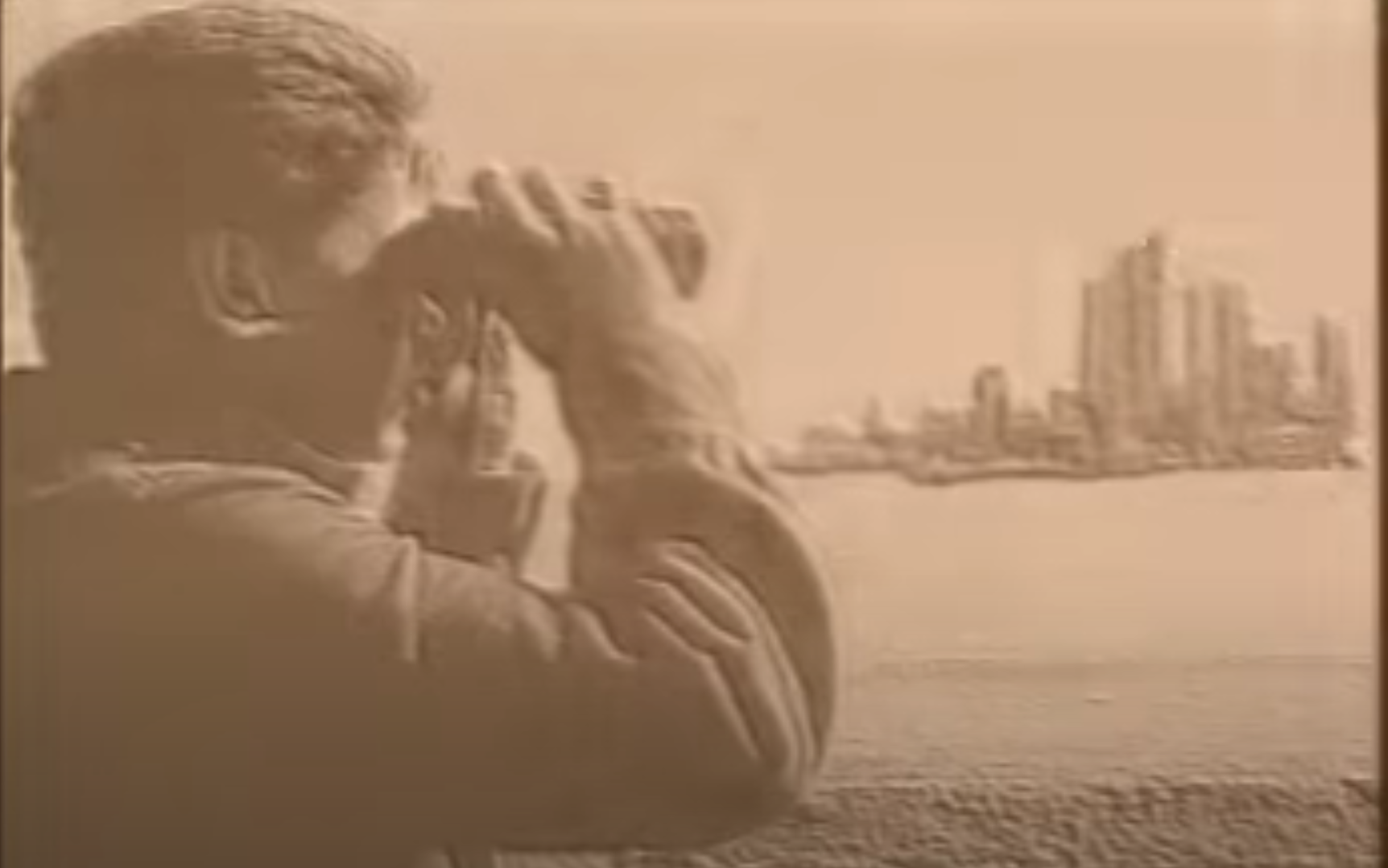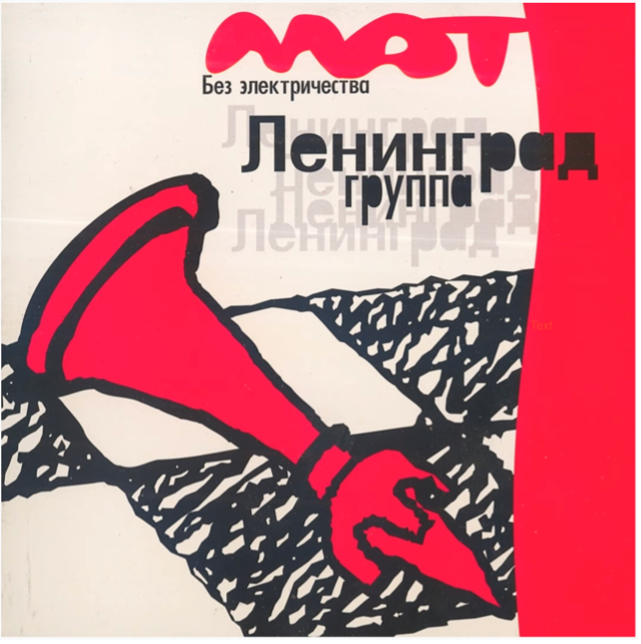Explore:
Lyube performs "Atas," 1990
In 1990, the rock band Lyube performed their recent hit, "Atas," on Soviet television. The band’s state-sponsored fusion of rock music with militaristic nationalism and patriotic culture would, among other things, endear them to Vladimir Putin.
Lyube’s “Stop Fooling Around, America!” (1992)
This 1992 music video for Lyube's “Stop Fooling Around, America!” uses retro newsreel footage and animation to demand Alaska’s return to Russia, deploying folksy humor to advance post-Soviet neo-imperialism.
Leningrad’s “Profanity without Electricity,” 1999
The album cover, plus audio excerpts, from the 1999 album Profanity without Electricity (Mat bez elektrichestva) by the band Leningrad.
No preview available
Aleksei Balabanov's "Brother" (1997)
Aleksei Balabanov's cult crime drama, which made its title character, the loveable killer Danila Bagrov into a youth idol and a national emblem of post-Soviet masculinity
Aleksei Balabanov's "Brother 2" (2000)
The 2000 sequel to Balabanov’s (1959-2013) cult 1990s-era neo-noir, Brother, brought its heroes to Chicago, where they took on both American and Ukrainian villains.




